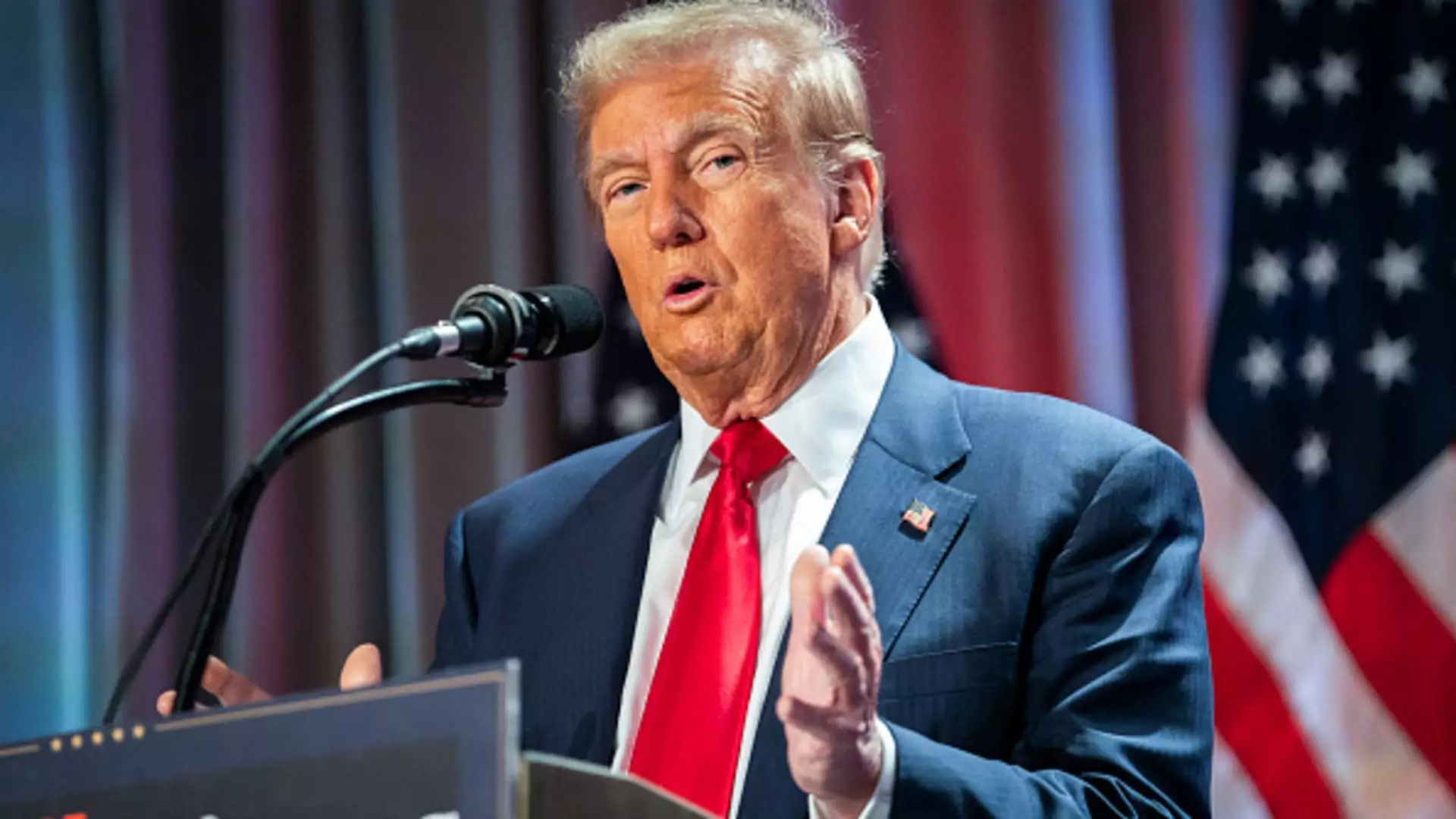With the ascendance of Donald Trump to the presidency, the economic landscape appears primed for considerable transformation, particularly concerning his anticipated tariff policies. As an astute money manager, John Davi from Astoria Portfolio Advisors is strategically adapting his investment approach to navigate these changes. His insights underscore the importance of vigilance and selective investment during a time when economic policies could potentially drive inflation upwards. The implications of Trump’s approach to tariffs and taxation on the U.S. economy warrant a careful analysis of potential investment outcomes.
Davi’s investment thesis leans toward small-cap industrials over their large-cap counterparts, on the premise that smaller companies may benefit more directly from the pro-growth policies likely to be championed in a Republican-led Congress. This optimism is fuelled by the performance of the Russell 2000 index, which tracks small-cap stocks and has experienced a notable uptick, reflecting an overall positive sentiment on Wall Street regarding small-cap prospects. By favoring these investments, Davi positions his portfolio to potentially capitalize on the domestic growth that may accompany favorable legislative agendas, thereby making a compelling case for prioritizing small-cap exposure in uncertain economic climates.
Moreover, Davi advocates a domestic-centric investment strategy while acknowledging the looming risks associated with tariffs. He posits that focusing on U.S.-based assets will likely serve investors well in the coming years, particularly as the new administration seeks to assert control over economic narratives leading up to the midterm elections. This forward-looking strategy, grounded in the belief of sustaining growth within the economy, speaks to a broader trend among investors who might find security in domestic markets amid international uncertainties.
On the flip side, Davi expresses caution regarding fixed-income securities, citing the potential adverse effects stemming from an increasing national budget deficit. His advisory not to own bonds during these fluctuating economic conditions reveals his mindful assessment of the risks involved. Since the elections, rising yields, particularly in the 10-year Treasury yield, underscore the volatility that might accompany traditional safe-haven assets. This paints a picture of an environment where conventional bonds may no longer provide the security investors seek, emphasizing a need for adaptability in investment strategies.
As the financial world adjusts to the implications of President-elect Trump’s economic policies, investors must keep a keen eye on market dynamics. John Davi’s insights serve as a valuable resource for navigating this transformative period. His focus on small-cap investments, a domestic strategy amidst tariff concerns, and caution around fixed income highlights a multifaceted approach to investment amidst uncertainty. As the economy evolves, being proactive and adaptable is crucial for aligning investment strategies with the broader economic trends that are set to unfold in the near future. The intersection of political agendas and market performance may lead to both opportunities and challenges that require careful consideration from savvy investors.

